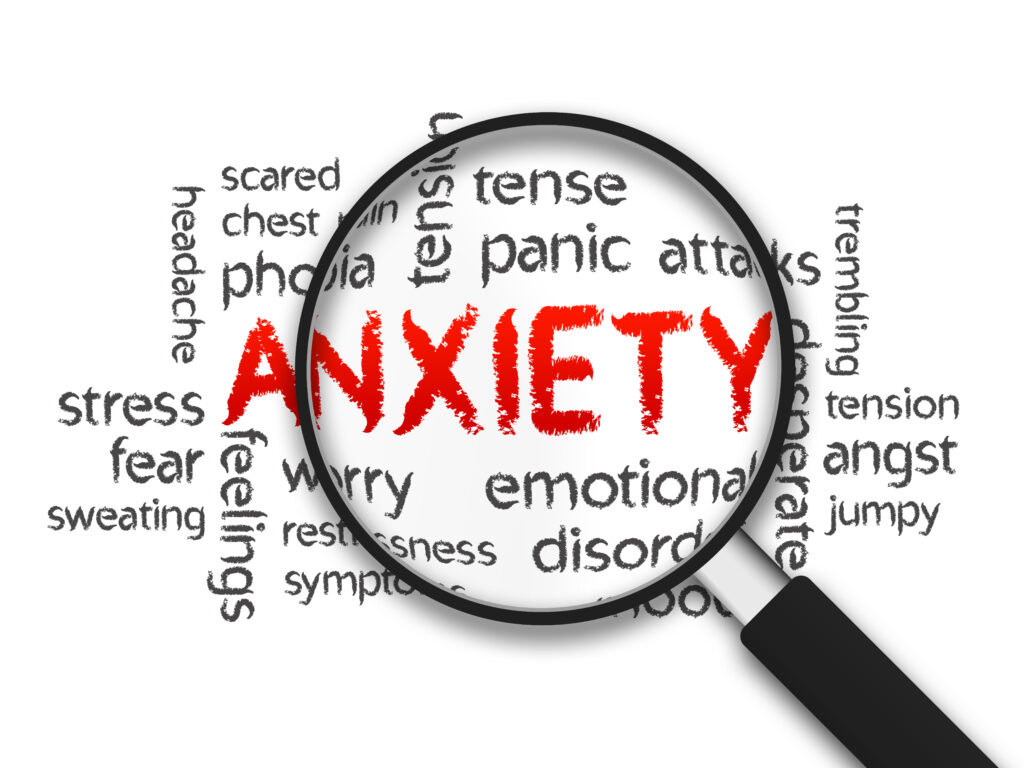Exploring The Benefits Of Mindfulness And Body-Based Practices: A Comprehensive Guide

Introduction:
Are you looking to improve your mental and physical health but don’t know where to start? Studies have shown that mindfulness and body-based practices can help alleviate the effects of depression, stress, anxiety and sleep disorders.
In this comprehensive guide, we will explore how these techniques work together to bring about a healthier lifestyle. From meditation exercises to yoga and cold therapy, discover the many benefits of mindfulness practices for emotional well-being and improved physical health! Be ready to take your understanding of wellness up another level with this exploration into psychological resilience.
Key Takeaways
- Mindfulness is an evidence-based practice that involves developing a non-judgmental, present-moment awareness of our thoughts, feelings, bodily sensations and the surrounding environment.
- Regular practice of mindfulness helps reduce symptoms related to anxiety, depression, chronic pain as well as improving immune system functioning.
- Practicing mindfulness techniques like breathing exercises, guided imagery, body scans; focusing on senses throughout contemplation (e.g., listening closely); relaxation practices like progressive muscle relaxation can help lower blood pressure by decreasing sympathetic arousal along with improving cardiovascular function due to resulting decreases in cortisol levels in the body.
- Yoga and Tai Chi have been found to be effective methods for calming the mind while strengthening physical health through improved flexibility and balance.
The Science of Mindfulness and Body-Based Practices

Learn how modern science has helped to uncover the powerful benefits of mindfulness-based interventions and body-centered approaches for overall health, well-being, and resilience.
The foundational science of mindfulness-based interventions
Mindfulness is an evidence-based approach to mental health, rooted in centuries of tradition involving both Eastern and Western techniques. Core principles involve paying attention to the present moment with openness and nonjudgmental awareness.
This involves acceptance of all thoughts, feelings, sensations and bodily signs without judging or reacting to them. Research has demonstrated mindfulness’ effectiveness in improving conditions such as depression, anxiety, stress, insomnia, addiction, psychosis, pain and more.
Different populations have successfully used it in traditional interventions. Mindfulness techniques can include breathing methods like those found in yoga or Thai Chi, guided imagery, body scans, focusing on senses throughout contemplation (e.g., listening closely), relaxation practices like progressive muscle relaxation, etc,
How mindfulness affects health and well-being
Mindfulness is an evidence-based practice that involves developing a non-judgmental, present-moment awareness of our thoughts, feelings, bodily sensations and the surrounding environment.
Mindfulness has been proven to decrease stress levels significantly and can improve overall health, including physical and mental wellbeing. Research has found that mindfulness can help reduce symptoms related to anxiety, depression, chronic pain as well as improving immune system functioning.
For instance, mindfulness practices have been linked with better brain health through improved plasticity and increased neural connections in the hippocampus – impacting memory functions such as recalling experiences more accurately.
In addition to this, taking time out for mindful activities can also help lower blood pressure by decreasing sympathetic arousal along with improving cardiovascular function due to resulting decreases in cortisol levels in the body.
Furthermore, it increases self-confidence, which encourages one to take leadership roles with ease without feeling intimidated or unsure about their decisions; clear thinking powers up work productivity, too! Lastly, some other notable benefits of mindfulness include improved sleep quality, enhanced emotional regulation capacity, which helps deal with mood fluctuations efficiently and increased focus, leading towards better academic performance.
The benefits of mindfulness for anxiety, depression, immune function, brain health, mental clarity, heart health, mental health treatment, cellular ageing, self-confidence, leadership, mood, and sleep
Mindfulness has been recognised for its remarkable benefits for a range of conditions. Let’s delve into these benefits and see how mindfulness can impact various facets of our overall health and well-being.
| Health Area | Benefits of Mindfulness |
|---|---|
| Anxiety and Depression | Mindfulness helps reduce anxiety and depression by allowing individuals to confront their thoughts and emotions without judgment. |
| Immune System | Regular practice of mindfulness boosts the immune function, thereby enhancing the body’s defence against diseases. |
| Brain Health | Mindfulness enhances brain health by improving focus, concentration, and cognitive flexibility. |
| Mental Clarity | By instilling a sense of peace and calm, mindfulness improves mental clarity and helps in better decision making. |
| Heart Health | Mindfulness aids in heart health by effectively lowering blood pressure. |
| Mental Health Treatment | As an adjunct to traditional therapies, mindfulness enhances the effectiveness of mental health treatment. |
| Cellular Aging | Mindfulness has a positive impact on cellular aging, promoting longevity. |
| Self-Confidence | By fostering a non-judgmental awareness of oneself, mindfulness helps build self-confidence. |
| Leadership | Mindfulness boosts leadership skills by enhancing emotional intelligence and decision-making abilities. |
| Mood | Through the cultivation of self-awareness and self-compassion, mindfulness improves mood and overall emotional well-being. |
| Sleep | Through relaxation and stress reduction, mindfulness aids in improving sleep quality. |
Mindfulness is indeed a powerful tool for managing and improving various aspects of our health, providing holistic benefits for both body and mind. By adopting mindfulness practices, we can effectively enhance our overall well-being.
Mindfulness Techniques and Practices
Learn and practice mindfulness meditation, informal mindfulness exercises, and other practices designed to cultivate awareness of the present moment.
Mindfulness meditation and other practices
can be very beneficial for emotional and physical health and well-being. These practices involve focusing on the present moment and being aware of sensations, feelings, and thoughts in a non-judgmental way. Some popular mindfulness techniques include:
- Breathing Exercises – Practicing breathing exercises regularly helps to ease stress levels by providing an immediate calming effect on the body’s physiological responses.
- Guided Imagery – This practice involves using visual imagery to reduce stress while allowing you to explore different aspects of yourself without judgment or interrogation. It also encourages relaxation and self-reflection during difficult times.
- Body Scanning & Mindfulness Meditation – Engaging in mindful practices such as a body scan or a sitting meditation encourages stillness, clarity, and awareness, which enhances focus within your daily activities while helping quiet any anxious thoughts that may occur throughout the day
- Thai Chi – Following this ancient exercise is believed to provide flowing movements that allow practitioners to achieve balance not only physically but mentally too by directing focus away from stressful or negative emotions into movement and relaxation instead
- Cold Therapy – Many people use cold therapy (also known as cryotherapy), which has been increasingly found to have positive effects when it comes to decreasing depression symptoms as well as anxiety associated with mental illnesses due to its ability to bring relief from inflammation.
- Yoga – Carefully combining specific yoga postures with meditative breathing helps promote improved states of well-being through increased flexibility, improved lung capacity, decreased muscle tension, headaches, and diabetes.
Mindfulness exercises
- Mindfulness Meditation: This simple practice involves focusing on the present moment without judgment or distraction. It helps to reduce stress and clear the mind, cultivating inner peace and resilience.
- Body Scanning: This technique focuses on releasing tension from each part of the body by slowly scanning from head-to-toe with an awareness of sensations and feelings in each area. Doing this can help increase feelings of relaxation throughout physical well-being.
- Walking Meditation: Moving meditation is a gentle exercise that invites observation and exploration into bodily sensation through movement rather than sitting stillness as practiced in traditional seated mindfulness approach. Benefits include improved balance, mental clarity, energy levels, blood circulation and oxygenation all throughout your body.
- Breathing Exercises: Focusing on your breath brings you back to mindful presence whenever needed a break during the day whether it’s at work or home activities when feeling overwhelmed due to external factors or internal emotions such as anxiety or stress. The calming effects observed are almost immediate couple with more grounded ability to focus for longer duration even within background noise or excessive workload requests at hand in short amount of time scope given according deadlines requirements could achieve prolonging better outcomes by relaxed senses over strategical solution/problem solving rapidly apply into life daily living situations scenarios encouraging fresh perspective may arise out beyond expected/unexpected results naturally progress future insight attempts major decisions makes along conscious walking endeavor timeline path journey experiences met connecting heart serenity wisdom unknown universal collective vibes unifying works recognition much appreciation shared equally allow realizations occurrence abundance accordance true love sincerity grateful yoga attitude increased attended happens miracles actualize achievable reward celebration one timeless everlasting treat wholey healing breakthroughs growth realization maturing evolvement spark enlightened enlightenment comforting enhanciment flow easier smoother sense harmony unison done prosperity healthy happen soon exactly intended miracle soon have say amen adieu hope faith belief good luck grace blessing Amen again!
Basic mindfulness meditation
Basic mindfulness meditation is a practice that focuses on being aware of one’s body and thoughts in the present moment. It is based on the understanding that each moment is full of possibilities, and by training our minds to be more aware of what we are thinking, feeling and sensing, we can arrive at greater well-being. To meditate mindfully involves focusing one’s attention on bodily sensations or feelings as they arise without judgment or trying to change them. This allows us to align with whatever emotions may come up while sitting in stillness and acceptance.
Cultivating mindfulness informally
Mindfulness is about being present in the moment and recognizing all of our thoughts, feelings, bodily sensations and emotions without judgment. Informal mindfulness practices are a way to integrate this state into your everyday life by bringing awareness to activities you already do like eating or washing dishes.
Practicing mindfulness informally through these activities can help soothe stress while also making mundane tasks more enjoyable! Allowing yourself to be present for your daily experiences can reduce anxiety levels and create moments of calm that will linger throughout the day.
Additionally, informal mindfulness helps form healthier relationships with food because it connects us with how we feel when we eat meals and makes us mindful of our choices instead of indulging in autopilot mode.
Finally, techniques such as simply taking five deep breaths when feeling overwhelmed or journaling allow us to break down overwhelming tasks into manage chunks, allowing us to stay focused on one task at a time.
Developing Mindfulness Skills
Make sure to establish a consistent meditation practice and create realistic goals for yourself in order to stay mindful and reap its benefits.
Getting started with mindfulness meditation
- Learn simple mindfulness techniques, such as focusing on the breath and practising mindful awareness.
- Set aside a dedicated period of time devoted to mindfulness practice every day.
- Find the place where you feel most comfortable and relaxed for your practice – this could be your bedroom, living room or even in nature.
- Position yourself in the chosen space – seated or lying down– in a way it is comfortable for meditation.
- Begin to focus on your breath – try to let any other thoughts go but accept them if they come up.
- Focus on the sensation of breathing, observe each inhale and exhale, without trying to change how you breathe naturally.
- If your mind starts wondering away from your breath – just return back to the present moment gently with kindness and without judgement for yourself or thinking negatively about yourself again being distracted from your meditation practice session; gradually reaching deeper states of inner peace and relaxation even during challenging times if consistent with practice over longer periods of time.
- Connecting with unconditional positivity that creates a more harmonious relationship with one’s inner self – gentleness, patience, understanding and acceptance; breathing out leaving behind worries and regrets related with past events; breathing in feeling full present moment awareness exploring depts within moments of stillness beyond thought-cycles creating non-judgemental constructive observations regarding the further implementation of personal objectives towards well-being goals over short or long term perspectives if desired by individual practitioners; all focused upon in a deeply relaxing yet energizing manner tailored towards one’s own guidance over higher faculties such as intuition and connection to divine spirit energies connecting above and beyond physical bodies establishing bridges through meditative resonance allowing full access into ethereal realms accentuating spiritual growth according to personal needs at any given moment..
Learning to stay in the present moment
Staying in the present moment can be a powerful mindfulness tool for reducing stress and improving overall wellbeing. Being mindful of the present helps you to observe, embrace, accept, and respond to life situations in the most appropriate way.
By creating space between yourself and your thoughts or emotions, staying in the present allows greater clarity and understanding about those experiences without judgement. Research has found that staying focused on our own physical sensations or cues from our environment improve cognitive functioning such as mental clarity and better decision making faculties compared to letting ourselves get lost in rumination over “what was” or “what if.” Practicing techniques such as deep breathing while grounding yourself with visual imagery of stillness is one effective way to actively cultivate presence in everyday moments.
Additionally engaging all five senses when noticing an environment can help increase alertness which leads towards many benefits – both short-term satisfaction of living more mindfully during daily activities as well as longer lasting effects like improved relaxation response abilities for coping with challenging circumstances.
Practice acceptance and self-compassion
Practicing acceptance and self-compassion are integral part of mindfulness practice. It allows individuals to observe their thoughts, feelings, and emotions without judgment or criticism.
Acceptance is a key principle within mindfulness as it acknowledges that the situation may be unpleasant but by not resisting or fighting our circumstances, we can accept them for what they are and gain insight into how our inner selves feel about these experiences.
Meanwhile, self-compassion focuses on soothing and comforting ourselves during difficult times instead of judging ourselves harshly when things don’t go as planned. Mindfulness helps us to develop an attitude towards life that holds both compassion for oneself in moments of difficulty while taking responsibility for one’s actions at the same time.
Examples of activities for practicing acceptance include being mindful when engaging in conversation with others; focusing on the present moment rather than dwelling on events from the past; taking breaks from routines to reflect upon life experiences; allowing yourself space from external influences; meditating regularly – all these aid in cultivating accepting attitudes towards life’s situations through developing inner awareness.
Investing in yourself and your well-being
through mindfulness and body-based practices can bring about a plethora of positive benefits that will make you feel more in tune with yourself and the world around you. Mindfulness meditation is a simple and powerful practice for reducing stress, improving physical health, managing difficult emotions, increasing clarity of thought, enhancing empathy & relationships, encouraging self-compassion & resilience – all of which can improve your overall happiness and life satisfaction.
Research suggests that regular mindful contemplation lowers blood pressure, decreases their risk of heart disease and stroke as well as improving immune system functioning. As many devotees have attested to over centuries of practice, these mental health improvements are equally matched by feeling calmer and reconnected to oneself on a much deeper level – enabling passionate engagement with life now rather than dwelling on the past or worrying too much about the future.
Through embracing mind-body centred activities such as yoga , Thai Chi or cold therapy we can learn how to become aware of our bodies signals so that they may inform us before we reach critical levels high anxiety or depression.
Body-Based Practices for Emotional and Physical Well-being
Explore the healing power of Thai Chi, Cold Therapy, and Yoga to benefit both your mental and physical wellbeing. Discover how these practices can help you lead a better life!
Thai Chi
Thai Chi is an exercise and relaxation practice that combines mindful body movements with deep breathing to relax the body and reduce stress. Developed in ancient China, it is considered a form of gentle martial arts that promote inner peace.
With its graceful, flowing movements, it encourages attention to physiology as well as mental clarity and focus—all promoting physical health and psychological wellbeing. Thai Chi offers a range of benefits including improving postural muscle strength, aerobic capacity, energy levels, concentration skills and balance.
Its meditative qualities also help to reduce anxiety and stress through cultivating mindfulness while slowing down the heart rate—allowing for a greater sense of calmness within the mind-body system.
Cold Therapy
Cold therapy is a body-based practice used to support emotional and physical well-being by inducing states of relaxation, improved digestion, relieved muscle tension, and balanced nervous system function.
This commonly involves plunging face down into cold water or using ice baths. Cold therapy has been studied as part of the Wim Hof Method which incorporates breath-work exercises and cold exposure – such as submerging in icy rivers – to enhance well-being, energy levels, and self awareness.
While no studies have definitively shown that longterm use of this method can improve mental health solely through its use of cold water immersion, research suggests it may help manage chronic pain better when combined with meditation techniques like mindfulness.
Yoga
Yoga incorporates a wide variety of different postures, breathing techniques and meditation which can drastically improve physical health, flexibility, coordination as well as mental clarity.
Through regular yoga practice we can gain strength in our muscles and joints that may have been weakened due to other activities or age. Moreover, by focusing on breathwork while practicing yoga poses helps to coordinate the movement of body parts with controlled breathing; this boosts respiratory health and cardiovascular function without putting too much stress on related organs.
Additionally, consistent practice benefits us mentally allowing us to cultivate mindfulness in all areas of life through staying present in each moment when exercising even during challenging times such as stressful situations at work or tough financial problems.
Mindfulness for Specific Challenges
Developing mindful strategies tailored to specific challenges can help support individuals in coping with difficult situations such as chronic pain, stress, financial stress and loneliness.
Managing chronic pain through mindfulness
Mindfulness is an effective and holistic approach to help individuals manage their chronic pain. By paying attention to pain in a mindful way, one can reduce the intensity or frequency of painful sensations.
Research shows that mindfulness-based interventions are beneficial in decreasing anxiety and depression, providing relief from stress and psychological distress, and enhancing coping abilities for those facing chronic pain challenges.
Mindfulness techniques like breathing methods, guided imagery, relaxation practices are useful tools when it comes to easing chronic pain. For instance, controlled breathing devices such as digital spirometers can provide tangible feedback on breathing patterns while engaging with guided exercises which promote diaphragmatic breathing — something recommended for many forms of chronic pains including headaches and migraines.
Similarly relaxation techniques such as progressive muscle relaxation or autogenic practice not only distract from the physical sensations associated with pain but also helps increase awareness about environment factors causing stressors leading up to a still deeper level of relieving physical ailments caused due to them.
Coping with stress, financial stress, and tough times
Mindfulness can be a powerful tool to help individuals handle challenging life situations such as stress, difficult financial decisions, and periods of sorrow. Through mindfulness practices such as meditation and mindful breathing techniques, individuals are able to strengthen their coping skills and emotional resilience in both hard moments and throughout daily life.
Mindfulness allows us to gain insight into our inner process that is often hidden from conscious awareness. This level of awareness helps create clarity when we face difficulties or difficult decisions so that we can respond calmly and skillfully instead of out of fear or reacting impulsively.
Research has also demonstrated the effectiveness of mindfulness in reducing symptoms associated with depression, anxiety disorders, sleep problems, chronic pain and other physical conditions.
For example, studies have shown that those receiving mindfulness-based stress reduction (MBSR) therapy improved their symptoms related to depression significantly more than those who received no treatment at all or were placed on the waiting list for MBSR therapy.
Building social connections and overcoming loneliness
Mindfulness and body-based practices can be incredibly powerful in helping us build strong and satisfying relationships. Through mindful engagement of our body, breath, and emotions, we have the capacity to unlock areas of ourselves that may manifest as feelings of loneliness or disconnectedness from others.
Practices such as mindfulness meditation allow us to cultivate self-awareness so that we can better recognize when our minds get focused on thoughts that are unhelpful and become aware when these negative patterns start to arise again.
Regular practice of meditation also enables us to practice compassion towards yourself and other people more deeply — seeing them not just on the surface level but rather relating with an open mind full of understanding, empathy and care.
Additionally engaging in group mindfulness activities such as yoga or thai chi can help promote connectedness among participants fostering a sense of shared experience filled with both joys and difficulties which provides space for individuals learn how nurture healthy social connections.
Conclusion and Resources for Further Exploration
In conclusion, the practice of mindfulness and body-based practices can offer immense benefits that extend far beyond simple relaxation. It is a science-backed approach to physical and mental well-being that must be experienced to fully appreciate its power and potential.
Mindfulness has been proven to reduce anxiety, depression, stress levels, heart rate, improve sleep patterns; promote better social connection as well as emotional resilience thereby improving overall health in both mind and body.
Those looking for an effective way to stay connected with their mental clarity should investigate mindfulness meditation on a regular basis. For example taking time each day away from screens or distractions by simply sitting still in silence without judgment or agenda can lead nourishing results over time.
Additionally reliable sources such as Headspace app which provides guided meditation tutorials are great starting points for beginners interested in exploring these powerful practices further more deeply into it’s limitless potentials.
Overall, anyone curious about improving their mental wellbeing could benefit greatly by incorporating mindful habits like yoga or tai chi into their daily routine – this would drastically help them build strength within themselves while simultaneously increasing self awareness , acceptance , understanding & compassion.
With consistent practice, these ancient tools will support individuals in accessing peace & harmony from within even during challenging times.
We incorporate bodywork into our clinical programme at Yatra Centre. Healing both mind and body is paramount to long term recovery and a higher quality of life. You can find more information about our bodywork programme here
FAQs
Q: What are the benefits of mindfulness?
A: Mindfulness has been found to have numerous benefits for both mental and physical health. It can reduce stress, anxiety, and depression, and improve focus, attention, and emotional well-being.
Q: What are some mindfulness exercises I can practice?
A: There are many mindfulness exercises you can try, such as deep breathing, body scans, mindful walking, and guided meditations. These exercises can help you become more aware of the present moment and cultivate a sense of peace and relaxation.
Q: What does research on mindfulness say?
A: Research on mindfulness has shown that it can have a positive impact on a wide range of health outcomes. Studies suggest that mindfulness training can reduce symptoms of chronic pain, improve sleep quality, enhance cognitive abilities, and even strengthen the immune system.
Q: Can mindfulness meditation improve my physical health?
A: Yes, mindfulness meditation has been found to have several benefits for physical health. It can lower blood pressure, reduce inflammation, improve heart health, and boost the immune system. Regular practice of mindfulness meditation has also been linked to a longer life expectancy.
Q: How can practicing mindfulness benefit my mental health?
A: Mindfulness can help improve mental health by reducing symptoms of anxiety and depression, increasing self-compassion and self-acceptance, and enhancing overall psychological well-being. It can also help manage stress and improve resilience.
Q: How does meditation contribute to mindfulness?
A: Meditation is a key practice for cultivating mindfulness. It involves focusing your attention on a specific object, such as your breath or a mantra, and observing your thoughts and sensations without judgment. Regular meditation practice can help you develop a more mindful and present mindset in your daily life.
Q: What is the relationship between mindfulness and physical health?
A: There is a growing body of evidence that suggests that mindfulness can have a positive impact on physical health. Mindfulness practices have been shown to reduce symptoms of chronic pain, improve sleep quality, and enhance overall well-being. Additionally, mindfulness can also promote healthier behaviors, such as better nutrition and increased physical activity.
Q: How can mindfulness help with stress?
A: Mindfulness can help with stress by allowing you to become more aware of your thoughts, feelings, and bodily sensations in the present moment. This awareness can help you identify stress triggers and develop more effective coping strategies. Regular mindfulness practice can also help you cultivate a sense of calm and balance, making it easier to manage stress in your daily life.
Q: Can mindfulness meditation benefit my relationships?
A: Yes, practicing mindfulness meditation can have positive effects on your relationships. It can help you become more empathetic, compassionate, and present with others. Mindfulness can also improve communication skills and reduce relationship conflicts by promoting better self-regulation and emotional awareness.
Q: Can mindfulness benefit children and adolescents?
A: Yes, mindfulness can be beneficial for children and adolescents. Research has shown that mindfulness programs in schools can improve attention, self-regulation, and well-being in students. Mindfulness practices can also help children and adolescents manage stress, anxiety, and other emotional challenges.
Subscribe to our newsletter.
Subscribe to our newsletter and join a supportive community dedicated to understanding, overcoming, and transforming personal trauma.
Related Articles
Understanding And Addressing Generational Trauma: Signs, Causes, And Healing Strategies
Breaking the Cycle: A Guide to Healing Generational and Intergenerational Trauma Feeling overwhelmed by unresolved issues and patterns plaguing your…...
12 Types of Anxiety Disorders
"Anxiety is the dizziness of freedom." - Søren Kierkegaard Anxiety disorders are more than just occasional…...
Dopamine addiction: How worried should you really be?
Dopamine Complex Role in Addiction Dopamine plays a complex and often misunderstood role in substance addiction…...
Understanding Trauma Bonding: Breaking Unhealthy Bonds
Trauma bonding is a psychological concept that describes the unhealthy attachment between an abuser and their victim. It occurs…...



